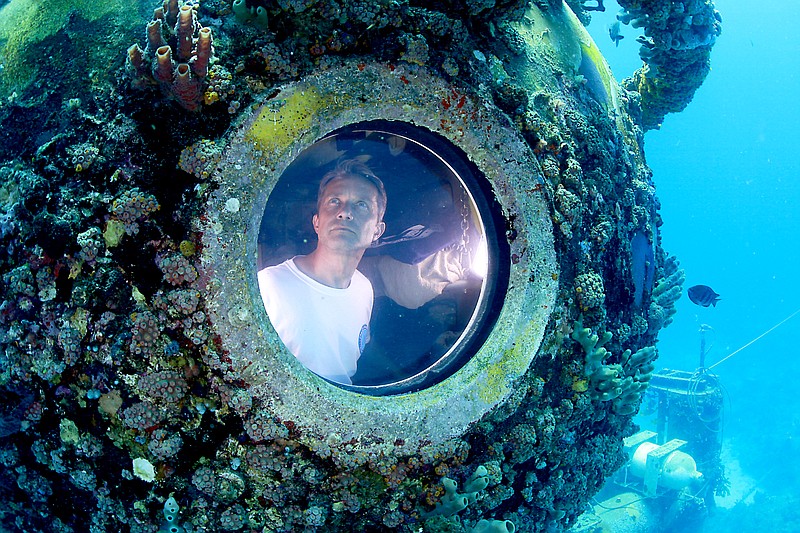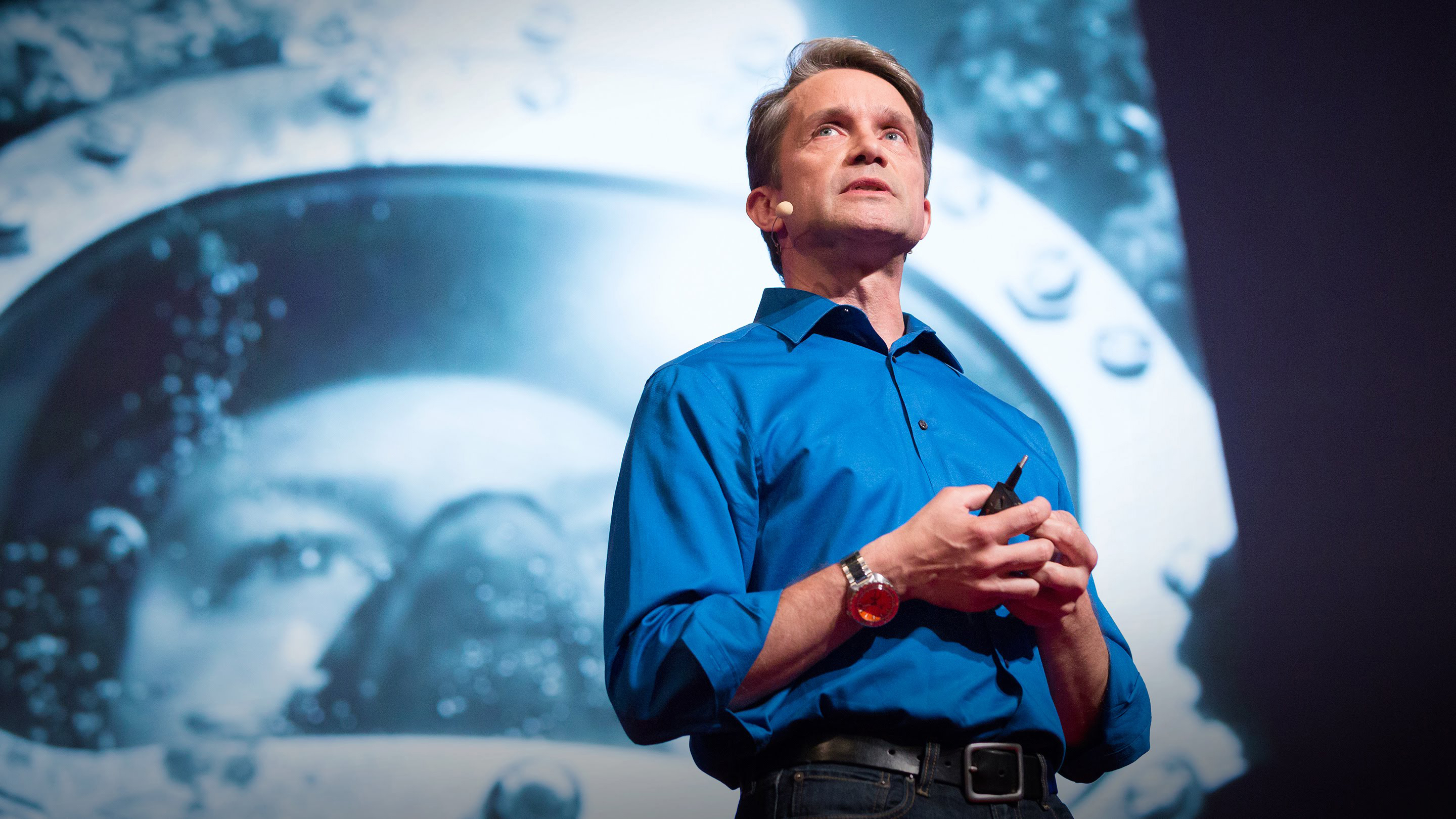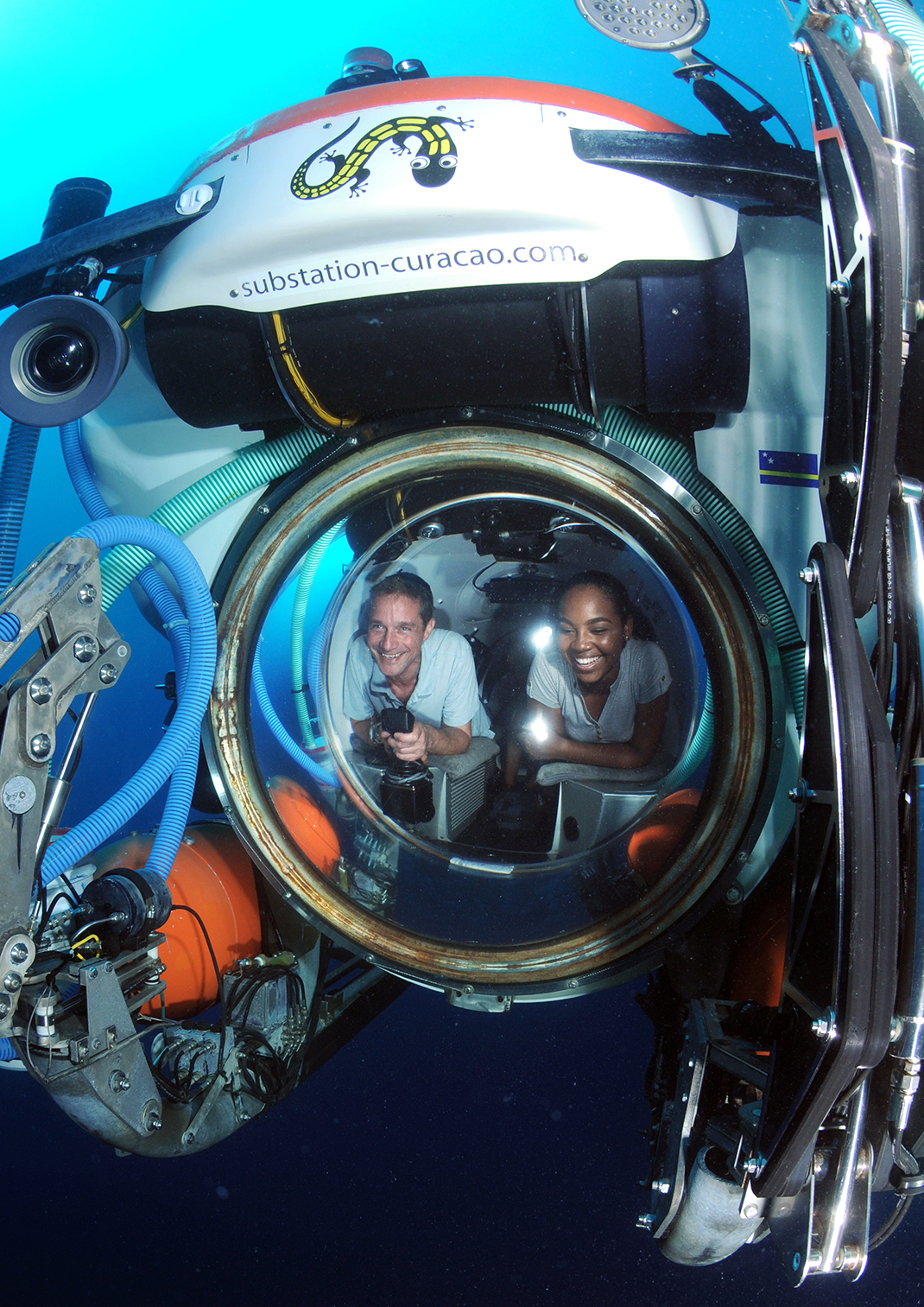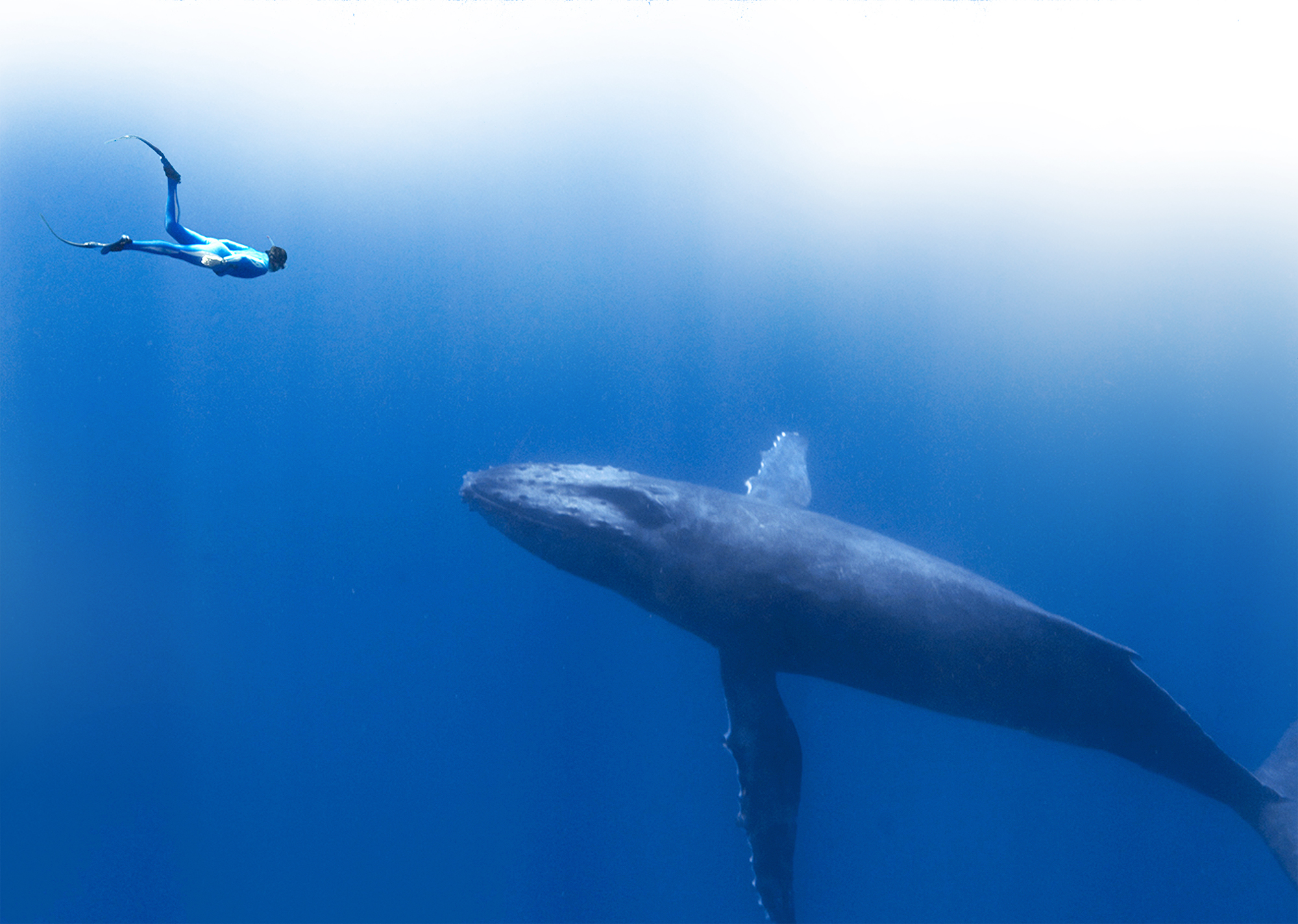Name: Fabien Cousteau
Age: 50
Hometown: Paris, France
Occupation: Aquanaut
Fabien Cousteau learned to scuba dive at age 4. But he says his innate connection to water was made long before then - 1 billion years before, actually, when the first organism crawled out of the sea.
"Our species came from water. [Water] is the very essence of life," he says.
Grandson to famed ocean explorer and inventor of modern scuba diving Jacques-Yves Cousteau, Fabien Cousteau has devoted his entire life to ocean exploration and conservation. He is well known for his study of sharks, including one documentary in which he helped create a 14-foot, 1,200-pound lifelike shark submarine in order to study the animals up close in their natural environment.
In 2014, he was part of the longest, deepest oceanic expedition to ever occur, living and working out of an underwater marine laboratory for 31 days. In 2016, he founded the nonprofit Fabien Cousteau Ocean Learning Center dedicated to environmental education. Currently, he is working on a number of new groundbreaking projects - about which he remains tight-lipped.
"I'm always looking forward to the next thing," Cousteau says. "I have a lot of exciting projects that I can in no way talk to the press about at this time. They're highly confidential and will make oceanic history. How's that for a teaser?"
We caught up with the underwater explorer before his upcoming visit to Chattanooga to help promote the Tennessee Aquarium's conservation work.
» My earliest recollection of water was my fourth birthday when I learned to scuba dive. For the first decade of my life, I was always exposed to water, whether it was lakes, streams, oceans. I grew from loving water in the womb, to being born in water, and so it was always a natural transition.
» Sharks were always an important part of my oceanic experience. I mean that literally. I was out diving and sharks were there. I was not taught to fear it. It was a natural part of the ecosystem. I was fascinated by it because it was a larger animal - and because it was a very different animal in nature than it is in Hollywood.
» The disconnect is fascinating. We love to fear [the shark]. If you look at pure statistics, there are about 80-90 negative shark encounters a year. About a dozen people die from those encounters. But look at the reverse: Over 140 million people are slaughtered by other human beings. So who should we be fearing?» Quite simply, we have already conquered the planet and we need to have some sort of villain so we feel there is something left to conquer, to fear, to challenge ourselves. Sharks are one of the only animals left. Lions, bears and wolves, for the most part, we've wiped out.
» I have a huge passion and curiosity for seeing what is on the other side. The world as it stands has some pretty amazing adventures beneath the blue veneer. We've explored the vast majority of land-based space, but the vast majority of this planet is based below that blue veneer, and in it, the vast majority of biodiversity lives and thrives.
» We have explored less than 5 percent of the ocean today. That gives me job security.
» One of the biggest frustrations of in-ocean exploration, even in scuba diving, is the limit of time. It is a huge stumbling block in regards to data gathering and exploring. Being based out of the world's only undersea lab, it gives you the luxury of venturing out for 10-12 hours a day. It opens the door like nothing else really can.
» It was an experience so unique and unprecedented that it surpassed any kind of concerns of being cooped up in a small underwater house.
» We were isolated for 31 days in a small, enclosed environment - about 600 square feet, and that had to house the equipment, the life support and six human beings. We spent most of our time out in the water. When it was time to come "home" it was just to eat, sleep and Skype with press or students in classrooms. We had the luxury of having Wi-Fi at the bottom of the sea, so it was never complete isolation in that sense.
» When it was time to leave, it was one of my saddest moments. I was ready to go another month, no problem.
» All sorts of weird things happen to our bodies underwater. We're not physiologically adapted to live in water. Your ear drums are very sensitive, and any variation in pressure - swells at the surface - affect that pressure. Your voice changes because of the density of air. Your hair grows faster. Your boo-boos heal faster, but infections go rampant. It accelerates your metabolism. I ate almost four times as many calories and lost almost 12 pounds. In a sense, you are living in a hyperbaric chamber.
» Anytime I can immerse myself in water it feels like a wonderful moment. I hate to single out any one experience; every dive is a good one. I look forward to the next, whether it's in the Red Sea, the Arctic or the Great Lakes.» One of my favorite experiences that I am blessed to have on a fairly regular basis is to be able to speak with young people who are just beginning to explore their lives and their surroundings and who are not yet diluted with the everyday matters that make grownups make excuses to not do good. In that given time, we can encourage them to be better caretakers than we have been.
» There's the idea that this planet is our natural resource bank account and we need to protect and regenerate the capital it bears so we can live off its interest. It is important for the economy, our health and the future of our children.
Fabien Cousteau visits Chattanooga
On July 19, Fabien Cousteau will visit the Tennessee Aquarium’s IMAX 3D theater, helping to raise awareness and support of the aquarium’s freshwater conservation work. Although he is best known for his oceanic work, Cousteau is also passionate about rivers and streams. “We live on an oasis in space. People dream of Mars, but just as exciting, if not more rewarding, is to explore the lakes, streams, rivers and oceans of the world. There are so many mysteries left to be unlocked.” Learn more at tnaqua.org/events-programs.



